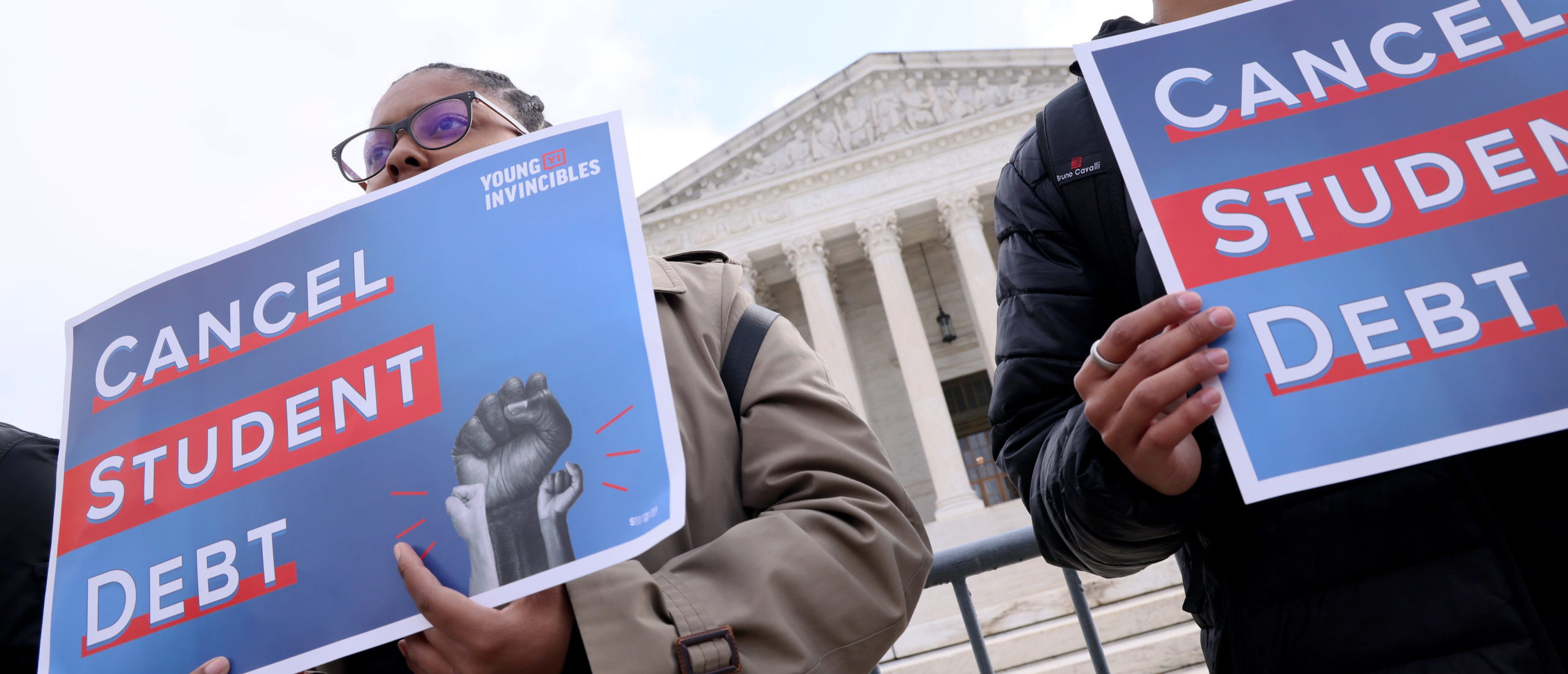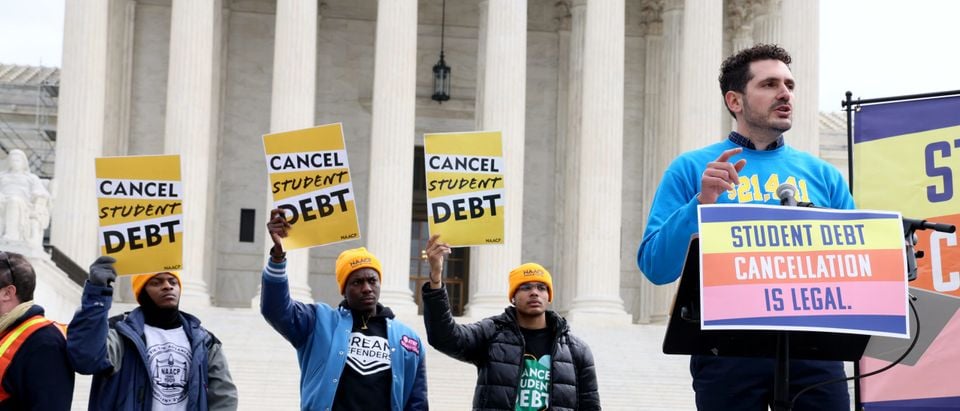The Supreme Court ruled 6-3 Friday to strike down the Biden administration’s plan to grant student loan forgiveness to nearly 40 million Americans using executive power.
The pair of cases, Biden v. Nebraska and Department of Education v. Brown, brought by six states and two individual loan holders, challenged the Secretary of Education’s use of emergency authority to cancel student loan debt.
“[T]he HEROES Act provides no authorization for the Secretary’s plan even when examined using the ordinary tools of statutory interpretation—let alone ‘clear congressional authorization’ for such a program,” Chief Justice John Roberts wrote in the Biden v. Nebraska majority opinion, joined by Justices Clarence Thomas, Samuel Alito, Neil Gorsuch, Brett Kavanaugh and Amy Coney Barrett.
In August 2022, Biden announced his plan to cancel up to $10,000 in student loan debt for non-Pell Grant recipients and up to $20,000 for Pell Grant recipients using the 2003 HEROES Act, which allows the Secretary of Education to “waive or modify” provisions of student financial assistance programs during a national emergency to ensure recipients are “not placed in a worse position financially.”
The justices unanimously found the two individual loan holders in Department of Education v. Brown did not have standing to sue, as they “failed to show that their injury is fairly traceable to the Plan,” but the majority determined in the states’ lawsuit that at least Missouri did have standing to challenge the Biden administration’s plan.
Missouri alleged that its student loan servicer, the Missouri Higher Education Loan Authority (MOHELA), would lose 40% of its revenue if federal loans are forgiven.
Justice Elena Kagan, along with Justices Sonia Sotomayor and Ketanji Brown Jackson, dissented.
“The statute provides the Secretary with broad authority to give emergency relief to student-loan borrowers, including by altering usual discharge rules,” Justice Elena Kagan wrote in her dissent, which Justices Sonia Sotomayor and Ketanji Brown Jackson joined. “What the Secretary did fits comfortably within that delegation.”
Kagan also disagreed that the states could bring the lawsuit in the first place: “The Court’s first overreach in this case is deciding it at all,” she wrote.

WASHINGTON, DC – FEBRUARY 28: Student loan borrowers and advocates gather for the People’s Rally To Cancel Student Debt During The Supreme Court Hearings On Student Debt Relief on February 28, 2023 in Washington, DC. (Photo by Jemal Countess/Getty Images for People’s Rally to Cancel Student Debt)
During oral arguments in February, justices seemed skeptical that Congress intended the phrase “waive or modify” to allow for the total cancellation of debt. (RELATED: White House Quietly Prepares Backup Plan If SCOTUS Strikes Down Student Loan Giveaway: REPORT)
On June 7, Biden vetoed a resolution to block the student loan forgiveness plan passed by both the House and the Senate.
All content created by the Daily Caller News Foundation, an independent and nonpartisan newswire service, is available without charge to any legitimate news publisher that can provide a large audience. All republished articles must include our logo, our reporter’s byline and their DCNF affiliation. For any questions about our guidelines or partnering with us, please contact licensing@dailycallernewsfoundation.org.


